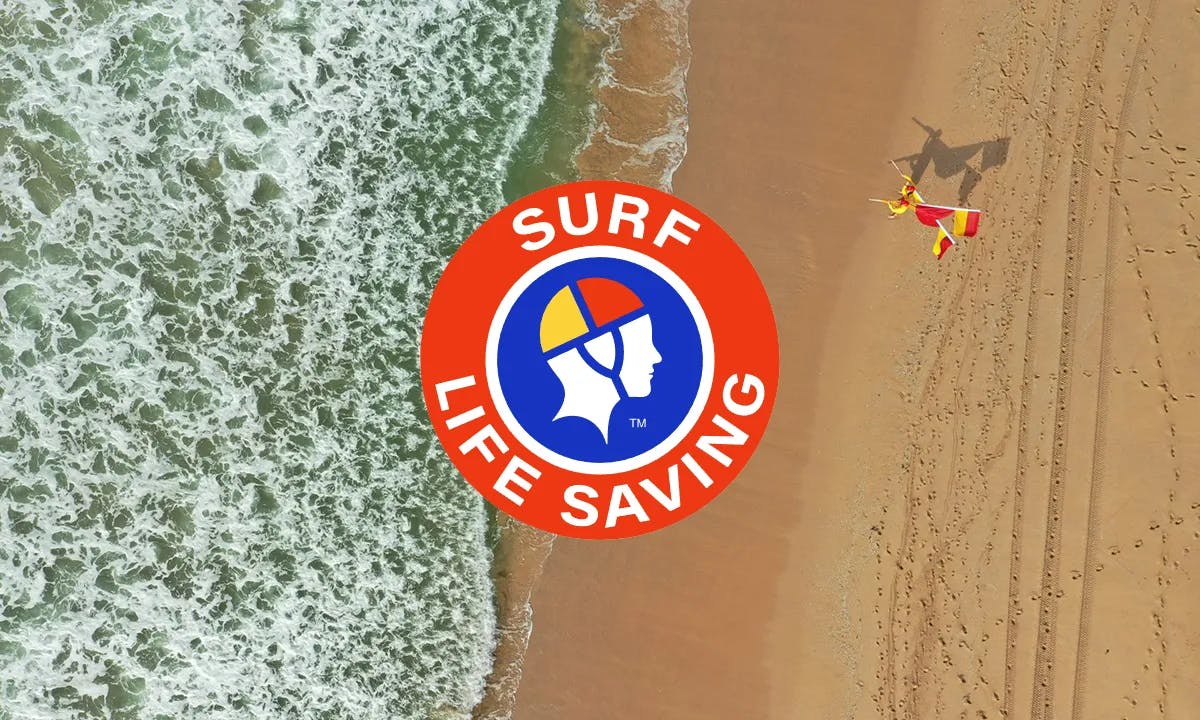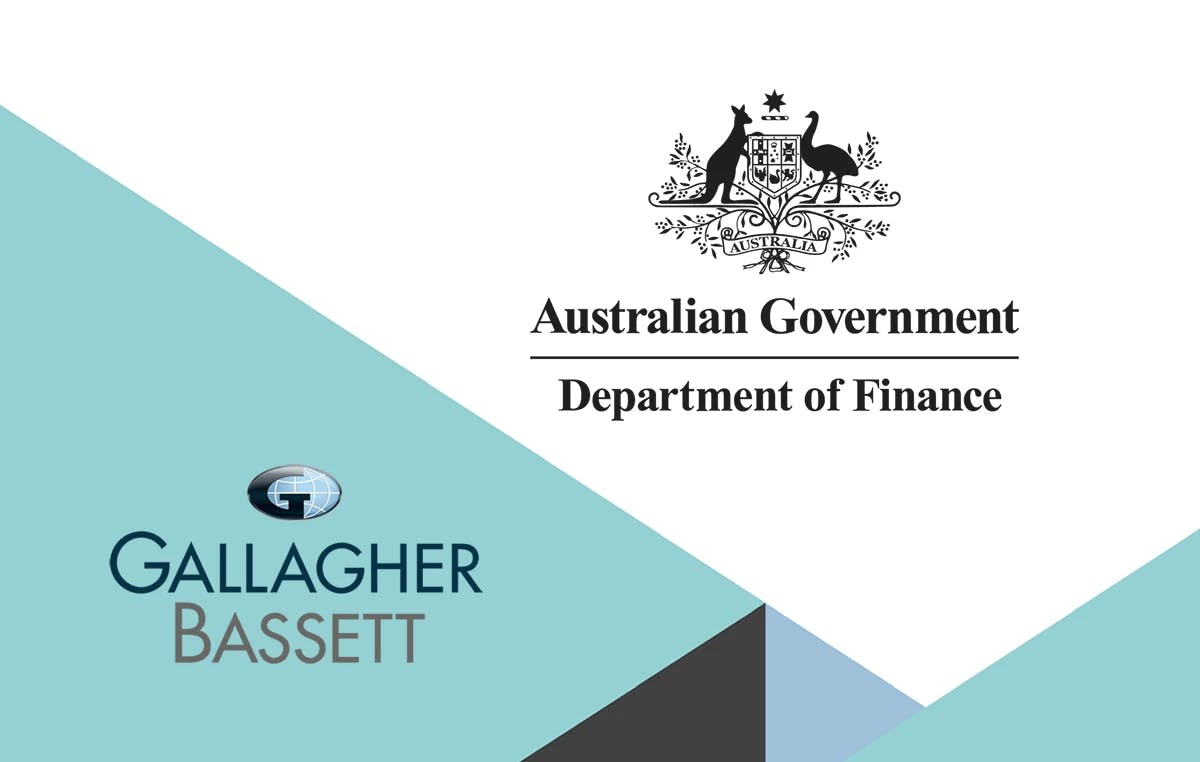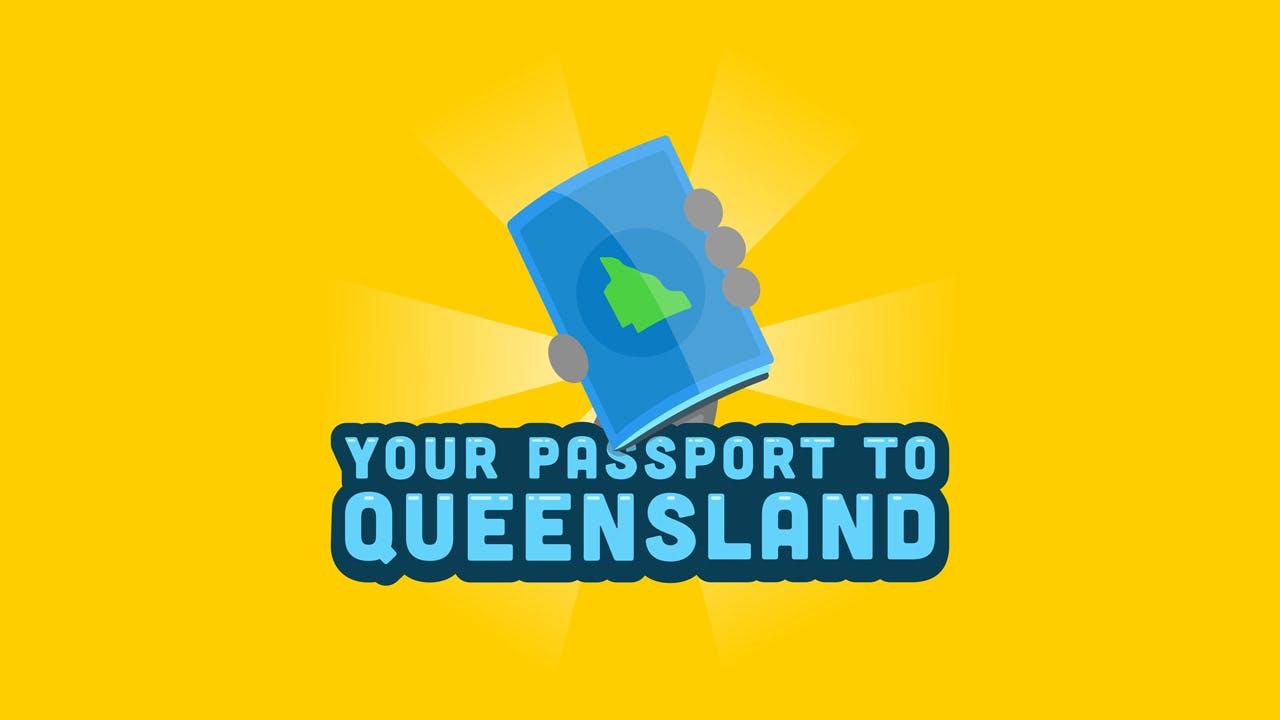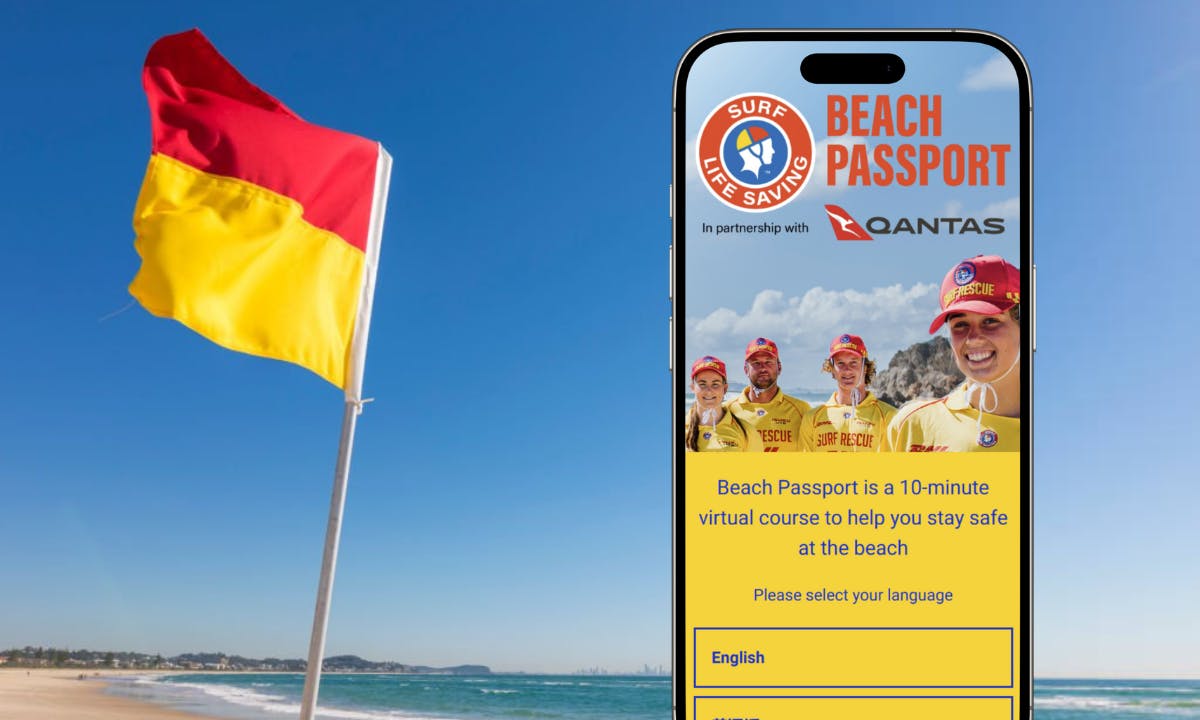
Beach Passport: Saving Lives On Australian Beaches With An Online Education Platform
Executive summary
Surf Life Saving Australia (SLSA)'s Beach Passport: Enhancing Coastal Safety through Public Education and Awareness
Australia's 50,000km coastline with over 12,000 beaches presents an impossible patrolling challenge, even for Surf Life Saving Australia (SLSA). With almost 100% of coastal drownings occurring in unpatrolled areas and over 16.6 million annual beachgoers, SLSA needed a scalable digital solution to deliver life-saving education beyond their physical reach.
The challenge was urgent. With summer fast approaching, SLSA needed a platform to help turn the tide on coastal drownings. With just eight weeks to build from concept to launch, SLSA partnered with April9 to create the Beach Passport—an interactive quiz platform delivering critical beach safety education in English and Mandarin.
Read on to learn how the project fared – and the results.
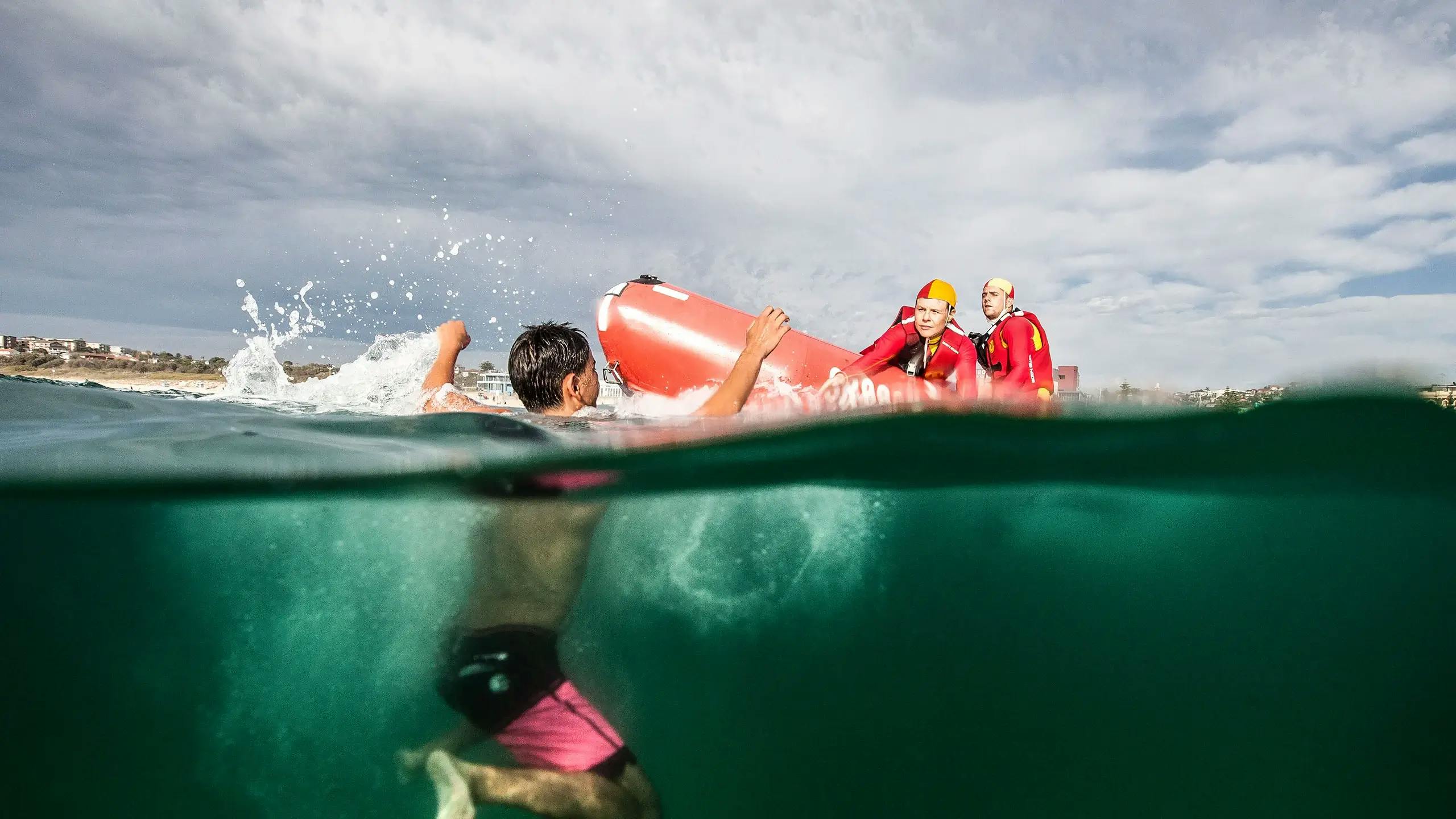
Client Background
SLSA’s Mission: Save Lives and Build Better Australian Communities through Coastal Safety
With over 190,000 members and 315 affiliated clubs, SLSA is the largest volunteer foundation of its kind in the world. It has been running since 1907 to save lives and ensure coastal safety on Australian beaches – a proud heritage of over 115 years.
To date, the organisation has rescued over 715,000 people, investing over 14+ million volunteer hours each year in this cause.
SLSA raises money through its fundraising arm, the Surf Life Saving Foundation (SLSF), which distributes the funds countrywide to SLSA branches and clubs. These efforts are crucial to ensure the safety of more than 300 million beachgoers visiting the Australian coastline every year.
Related reading: See how we transformed SLSF’s fundraising capability through website modernisation: https://april9.com.au/success-stories/surf-life-saving-foundation-websites
Apart from performing over 8,000 rescues annually, SLSA has grown to play a vital role in Australian communities, supporting mental health and providing pathways for young people to play a crucial role in community water safety.
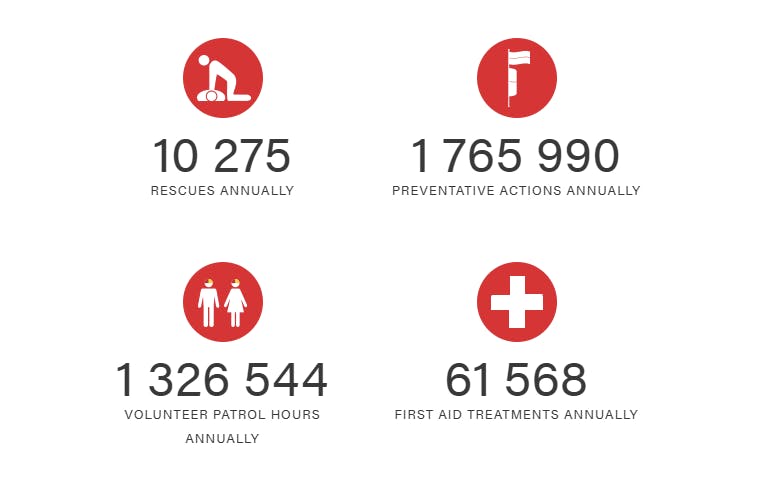
Challenges
Poor Public Awareness, Higher Water Incident Rates
Research shows that many beachgoers lack critical safety knowledge—from identifying dangerous rip currents to understanding flag systems—contributing to preventable incidents along Australia's vast coastline.
SLSA recognised that education at scale required a digital-first approach. Traditional in-person training and printed materials couldn't reach the hundreds of thousands of beachgoers who needed this knowledge, particularly those visiting remote or unpatrolled beaches.
With a national TV campaign already in motion, SLSA recognised the opportunity to extend its impact through digital education. To complement the campaign, they set an ambitious goal: launch a scalable, bilingual platform in just eight weeks—delivering vital safety content to a broad and diverse audience. April9 was engaged to bring it to life.
The Brief: Reach Every Beachgoer
Objectives
Dedicated and Accessible Education Website for Public Awareness
SLSA sought an engaging way to boost public awareness and education to a broader audience, including groups with Mandarin backgrounds.
As such, the organisation worked with April9 to build a website for the “Beach Passport” campaign. The two teams worked together to fast-track the website development project in time for the planned national water safety campaign to go live.
Surf Life Saving Australia also wanted the website to include functionality for capturing user details of those who completed the courses to support future communications and updates. This was the Lead Management System (LMS), and the entire process was to be automated to ensure a seamless experience.
The Solution
An Interactive Learning Platform Built for Impact and Scale
For faster and more efficient website development, April9 recommended using a Headless Page Builder tool over a traditional Content Management System. While a standard CMS site might have been simpler to implement, it would have lacked the flexibility needed to deliver the right courses and modules to potential learners. Additionally, the more dynamic CMS allowed for content updates and corrections beyond the go-live date.
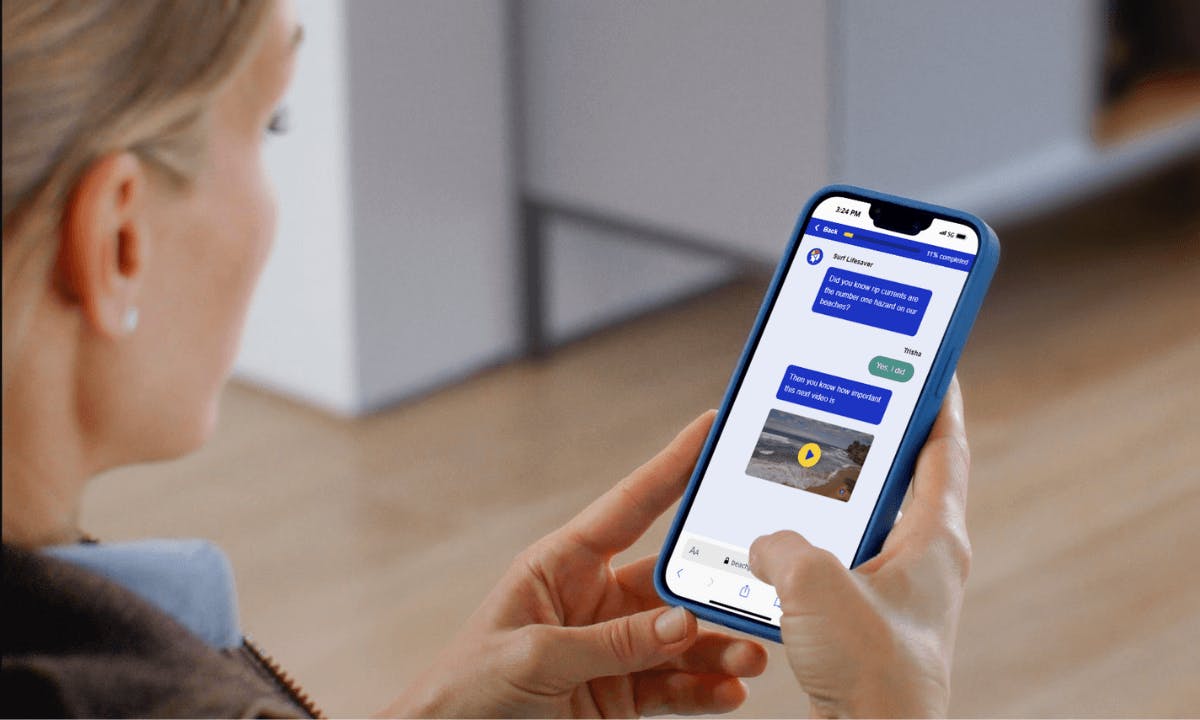
Innovative Content Delivery Through Interactive Learning
Features
The platform leveraged novel learning content delivery via interactive elements designed to keep users engaged throughout their safety education journey. Rather than traditional static content, the Beach Passport featured:
Rich multimedia experiences
with text bubbles, videos, quizzes and image carousels that made complex safety concepts accessible and memorable
Gamification through module completion
and engaging learning progress tracking that encouraged users to complete the full course
Two distinct learning paths:
separate adult and children versions, with the children's version featuring beloved Kangaroo Beach characters and voice assets from the popular Australian kids' show
Interactive assessments
that reinforced key safety messages through hands-on learning rather than passive consumption
Enterprise-Ready Architecture and Integrations
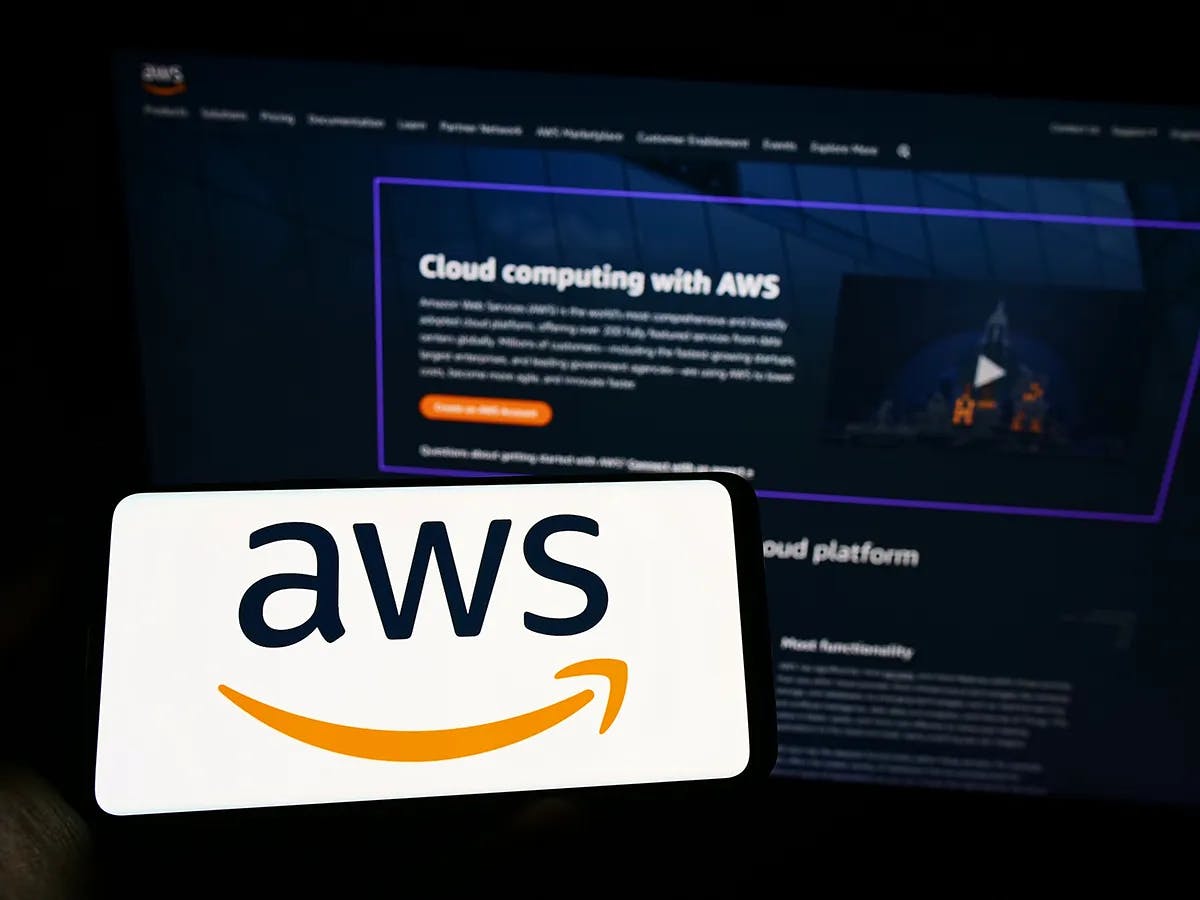
Scalable Architecture for High-Traffic Campaigns
To accelerate the development process, April9 leveraged automated Cloud deployment tools, streamlining everything from setting up new environments to deploying code for testing and production. We implemented a scalable, containerised web server architecture designed to handle potentially high traffic during the TV campaign launch, ensuring smooth performance aligned with the coordinated media delivery schedule.
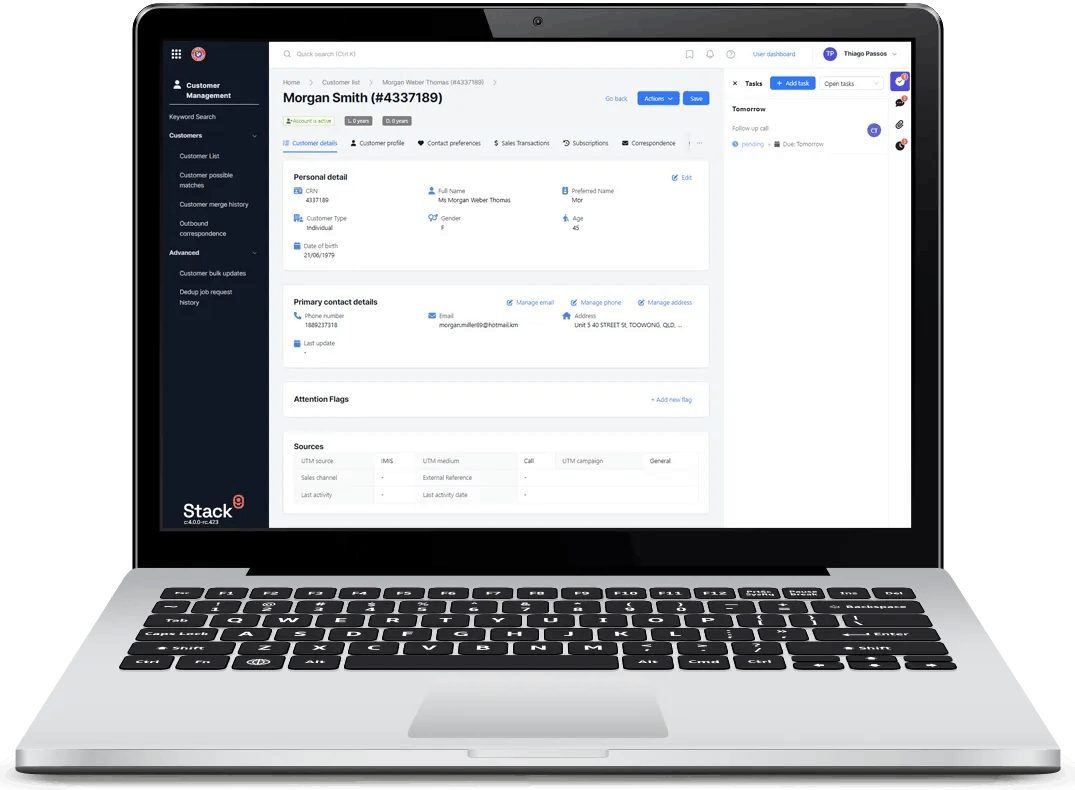
Seamless Integration with SLSA's Marketing Ecosystem
Additionally, April9 integrated the form capture directly into SLSA's Stack9 system for seamless marketing automation, enabling learners to share their details after completing courses and receive targeted follow-up communications.
Implementation Process
From Design to Go-Live: The Birth of the Beach Passport Website
The Beach Passport website journey moved at lightning speed. The project kicked off in early September 2024, with design finalised by late September. Development began by mid-October, leaving just four weeks to build, test, and launch — all before the campaign launch in mid–November. With tight coordination and agile execution, April9 delivered a production-ready site on schedule, overcoming last-minute challenges with flexibility and speed.
During implementation, the project faced a few timing-related challenges that required creative workarounds. For example, the full course content was still being developed in parallel with the website build. To maintain momentum and meet key deadlines, our team adapted by working with a limited selection of draft learning materials—ensuring the project stayed on track for a successful launch.
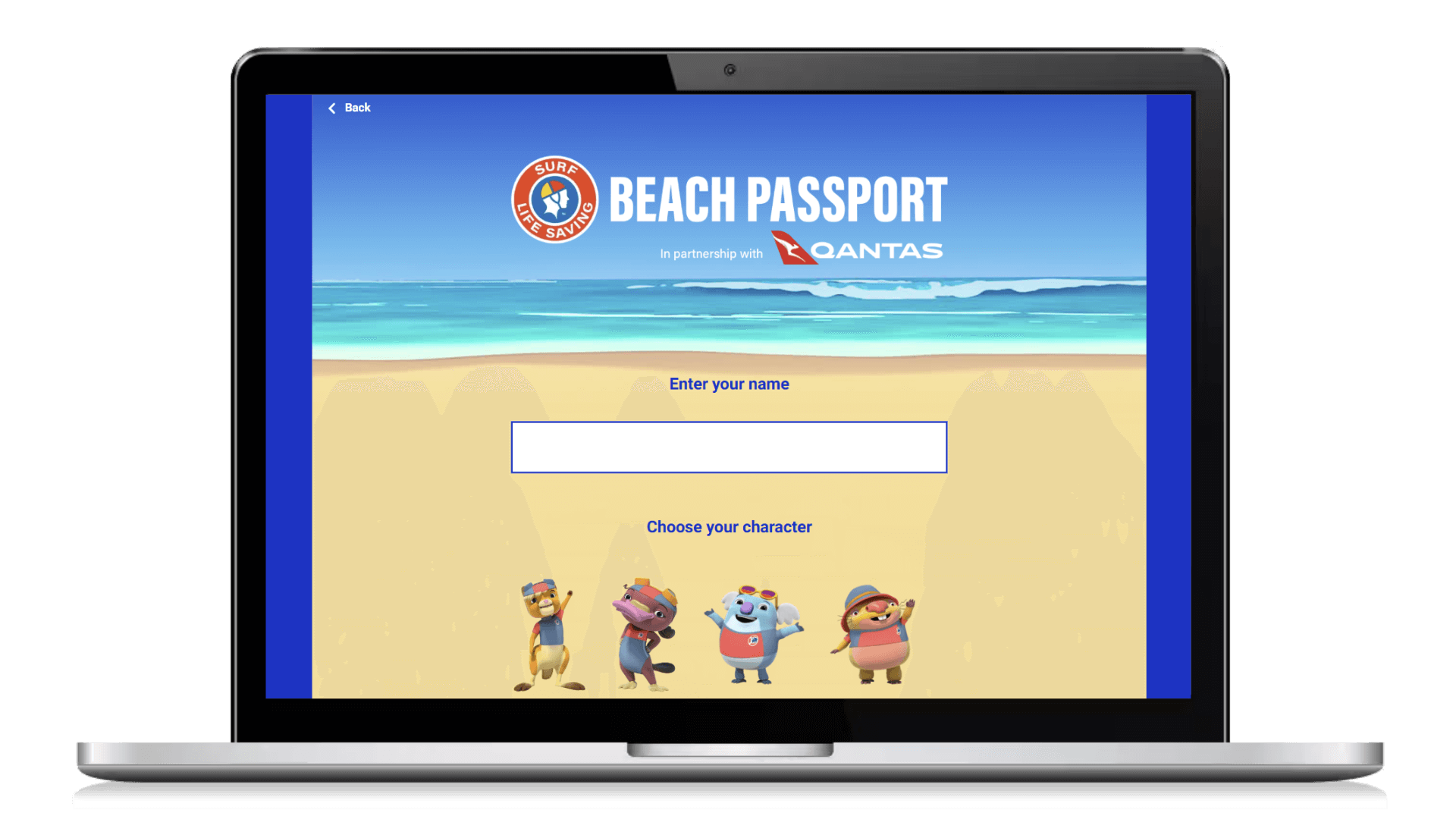
Thanks to the dynamic CMS features, using the test content was convenient and allowed our team to test all of the site’s learning functions without all the content.
During the implementation process, SLSA’s team complemented our efforts through feature sign-off, content, and testing, ultimately culminating in a successful partnership and on-time project delivery.
Platform Launch Delivers Immediate Impact and Engagement
Results
The Beach Passport platform (beachpassport.org.au) launched successfully on November 18, 2024, immediately capturing audience attention driven by the coordinated TV campaign. The results demonstrated both the urgent need for digital safety education and the effectiveness of the interactive approach:
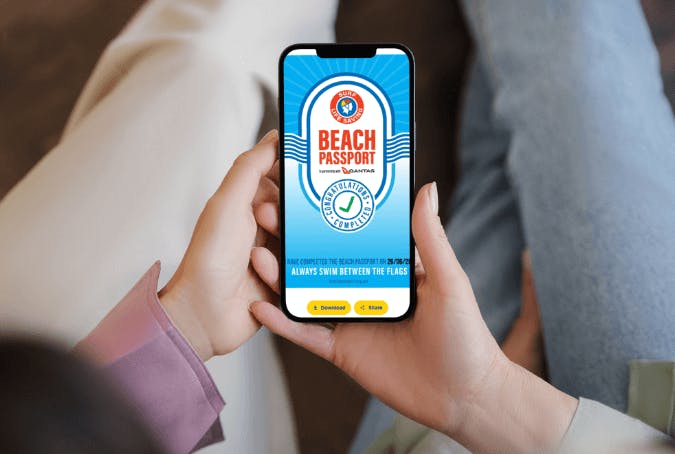
Over 37,000 people have completed the Beach Passport course since its launch, including more than 10,000 in the first month alone. The strong response validated the demand for accessible digital safety education and demonstrated the platform’s ability to rapidly engage users at scale—especially when supported by a coordinated national campaign.
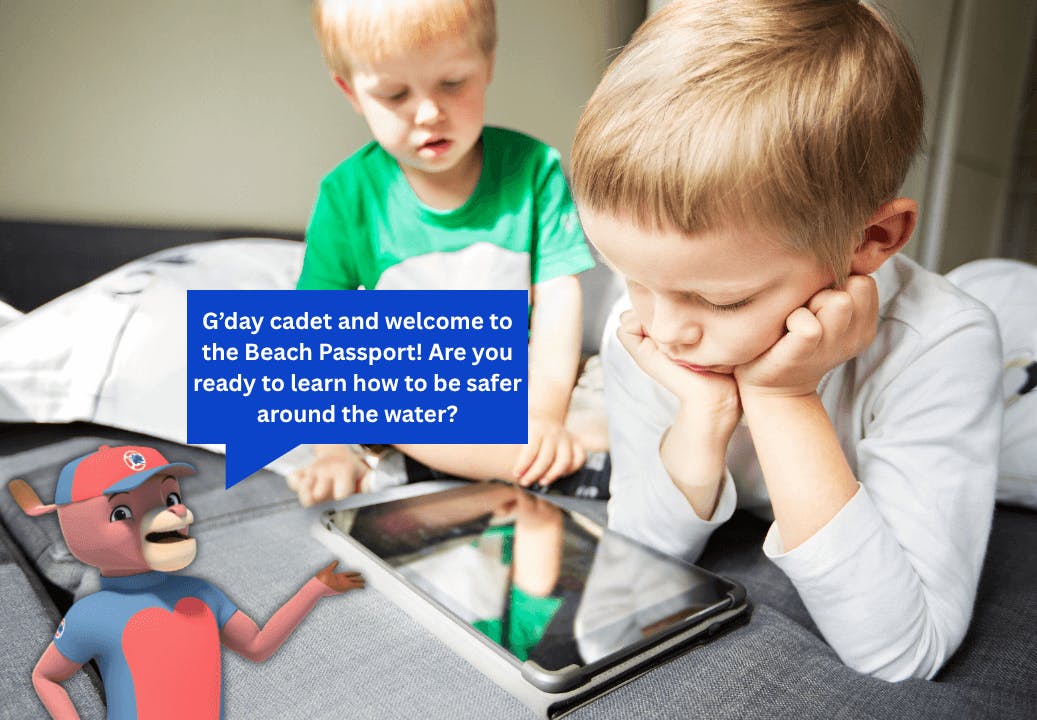
More than 1,000 children completed the interactive course—a traditionally hard-to-reach demographic for water safety education. With kid-friendly characters from Kangaroo Beach and gamified elements tailored to younger learners, the platform successfully translated vital surf safety messages into an experience that was fun, memorable, and age-appropriate.
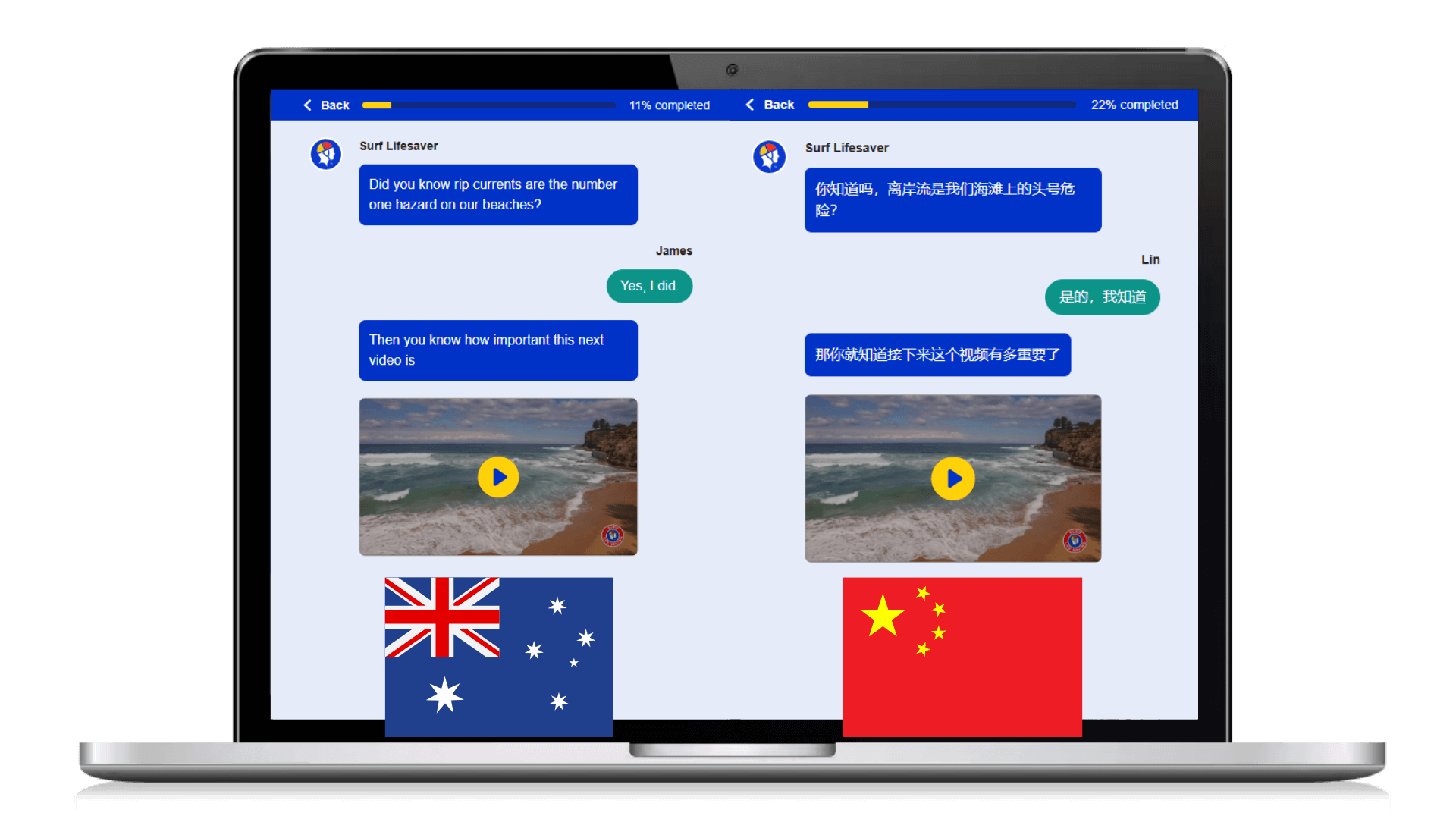
By offering both English and Mandarin language modes, Beach Passport made surf safety education accessible to one of Australia’s largest tourist demographics. This dual-language approach ensured key information reached international visitors and non-English-speaking communities, helping bridge a critical knowledge gap at unpatrolled beaches.
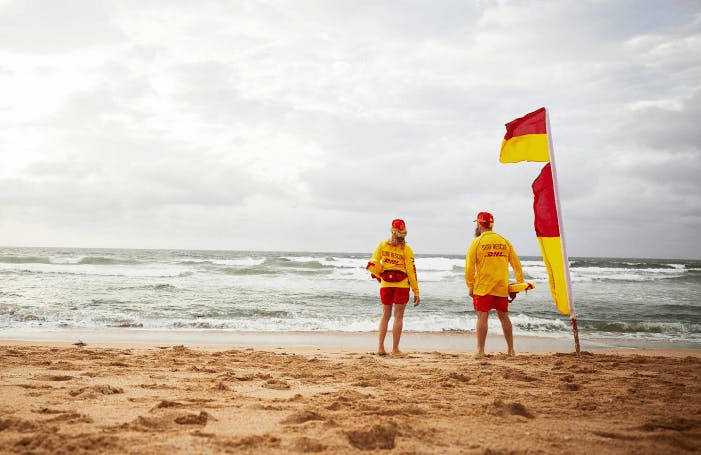
The Beach Passport was built on a flexible, scalable framework designed to accommodate seasonal updates and future expansion. With modular content delivery, multilingual support, and adaptive infrastructure, the platform is positioned to support new safety modules, promotional campaigns, and educational partnerships well into the future.
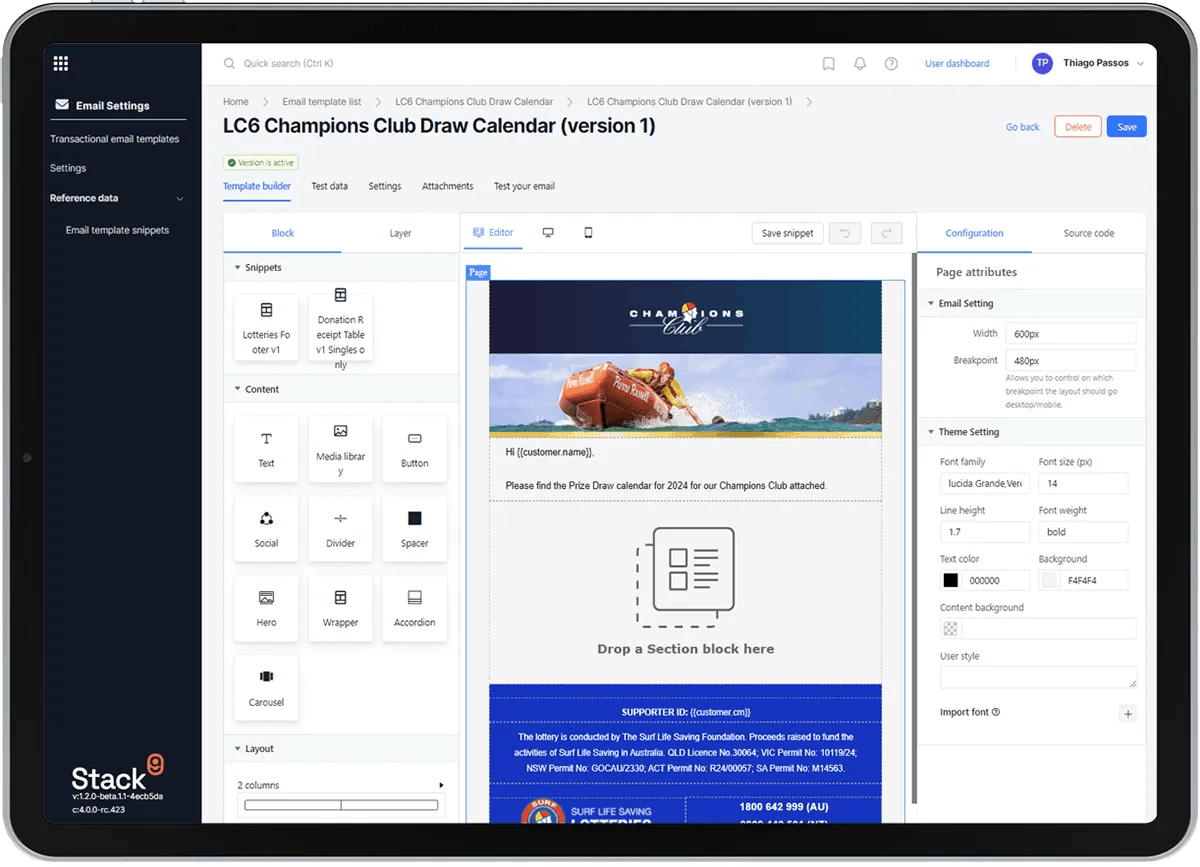
April9 implemented an integrated lead capture system that feeds user data directly into SLSA’s Stack9-powered marketing ecosystem. This enables SLSA to deliver targeted follow-up communications—such as seasonal safety reminders and program updates—without relying on manual processing, paving the way for smarter, more efficient audience engagement.
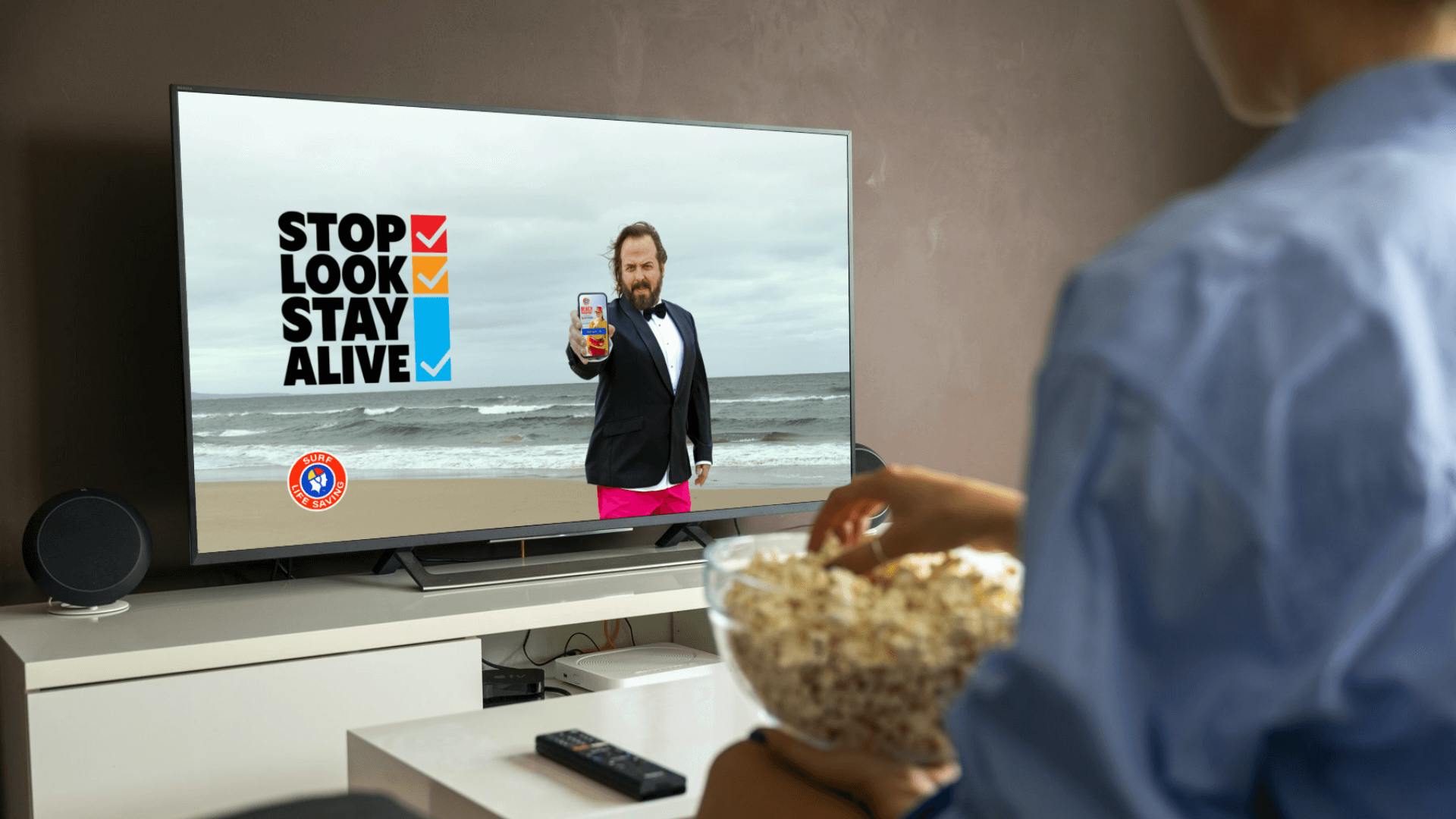
The success of the Beach Passport was amplified by a seamless transition from Surf Life Saving Australia’s national TV campaign to the online platform. Viewers were guided directly from broadcast messaging to an interactive course environment—minimising friction, maximising uptake, and ensuring that safety education moved beyond awareness into action.
"The platform proved that Australians were eager for accessible safety education when presented in an engaging, convenient format.”
Future Outlook
Supporting SLSA's Beach Safety Initiative, Step By Step
Building on this foundation, SLSA is developing a comprehensive digital safety ecosystem. The Lead Management System will enable targeted follow-up campaigns based on user behaviour, seasonal risk patterns, and geographic data.
Major Educational Integration Success
The platform's impact has already extended beyond individual learning, with the Beach Passport solution being integrated into the Western Australia school curriculum - a significant achievement that will ensure systematic beach safety education for thousands of students across the state.
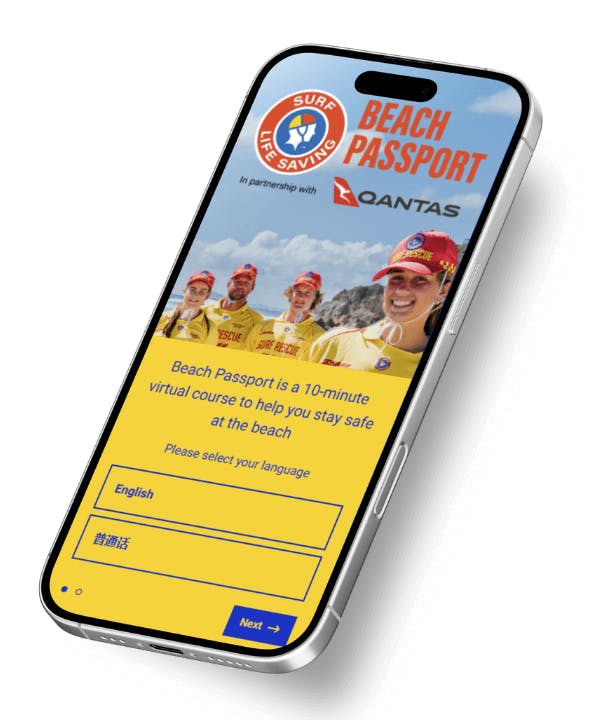
Expansion Plans
SLSA has committed to substantial further investment for 2025 to enhance the platform with:
- Rich interactive content development featuring new multimedia assets
- Fresh promotional campaigns designed to encourage users to "renew their passport" with updated safety knowledge
- Enhanced user engagement through expanded interactive features and learning pathways

Looking Ahead
Immediate next steps: Quarterly course updates reflecting seasonal hazards, personalised email campaigns encouraging knowledge refreshers, and expanded content modules covering advanced safety topics.
Long-term vision: Additional language options, integration with local surf club programs, and partnership opportunities with tourism operators to reach visitors before they reach the beach.
The ultimate goal remains unchanged: translating digital education into real-world behaviour change that prevents drownings and saves lives across Australia's vast coastline. We look forward to supporting them on their mission.


